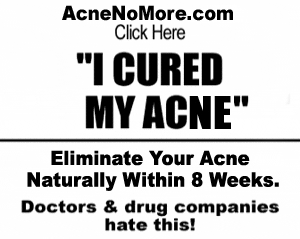How You Can Control Your Acne Problem
How You Can Control Your Acne Problem
Acne comes in a spectrum of severity. Mildest cases are simply occasional blemishes which require no treatment. The severest form is cystic acne which will require the care of a doctor along with prescription medications to help minimize the eruption of large, angry looking, blemishes which can leave deep permanent scars. This article can help you to decide a course of action.
Use hydrocortisone cream on an existing pimple to remove redness when it becomes inflamed. A dab of this cream can help not only soothe the pimple, but will shrink the blood vessels in the area, reducing the appearance of redness. Be careful not to use it too often, as your skin can get used to it and it may cause more skin problems in the future.
If an acne sufferer must shave afflicted areas, he or she should do so lightly. Shaving irritates the skin and can slice open pimples. Both of these effects can exacerbate an acne problem by spreading infectious bacteria and making nearby skin more susceptible. The lightest possible touch should be used when shaving acne trouble spots.
It is especially important to avoid touching your face if you are battling acne. You hands are always dirty and allowing them to touch your face increases your risk of bacteria entering your oil pores which will lead to a fresh pimple. Making it a habit to not touch your face will reduce the amount of acne you have.
Use a cotton ball to rub apple cider vinegar into acne trouble spots to help fight infection. All types of vinegar are useful for balancing the pH of human skin, which contributes to its overall health. A good pH balance also aids skin’s resistance to acne infection. Apple cider vinegar is particularly good for acne because it is all-natural and non-irritating.
Be careful not to mix multiple topical acne treatments in one day. For instance, using salicylic acid and benzoyl peroxide in the same day may cause skin to become inflamed, itchy or otherwise irritated. Using just one treatment at a time, plus a good moisturizer, will help to minimize irritation while healing acne.
Here is another reason not to smoke! Smoking affects pimples or acne breakouts! When a smoker exhales the smoke, it will travel up to their face, which can cause pimples to become more pronounced and make acne spread. A doctor may be able to help someone stop smoking.
Make sure to shampoo your hair often to keep oils, dirt and hair products from easy access to your skin. Use hairbands or other devices to keep your hair out of your face and off your forehead; and always wash your hands after you work with your hair to avoid transferring dirt or oil to your face.
As recognized earlier, acne can range from mild occasional small blemishes to large, angry, pustules which take days to clear up and can leave disfiguring, deep pits in the skin. By adopting strategies from this article, you can hope to clear up the milder cases and consult a doctor for more serious ones.





